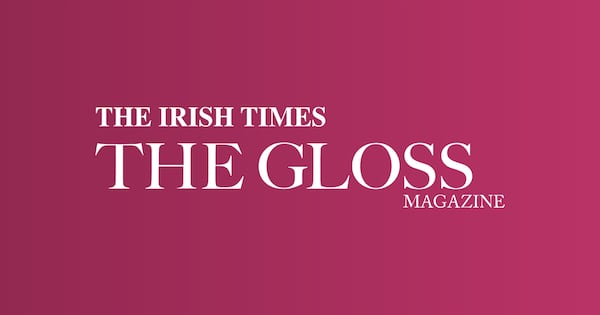On a recent panel discussing post-pandemic fashion – hosted by Anne O Dwyer, managing director of Kroll’s Network of Women – with fashion designer and entrepreneur Sonya Lennon, stylist Courtney Smith and myself, the most frequently asked question from the audience was how to dress more sustainably.
Sustainability is one of the biggest issues in the fashion industry, but can it really be sustainable? The word is losing its meaning when we are regularly bombarded with messages about eco-friendly collections, recycled fibres and ethical fashion, with clothes described as sustainable quadrupling in the last four years. Unlike food labels such as free range or organic, sustainability in clothing is not regulated; consequently, there is a lot of greenwashing. It has been estimated that 40 per cent of environmental claims could be misleading customers.
In an era where people are conditioned to expect clothes to be cheap, the facts speak for themselves about what fashion is doing to the planet – a consumption horror story. The industry churns out 80 billion garments annually. Zara, for instance, produced more than 450 million items in 2018. We throw away 2.1 billion tons of clothing to landfill, most of which goes to Africa. In the meantime, there has been an exponential rise in reselling, recycling and renting with sites such as Depop and Vestiaire thriving. Carrie Symonds renting her wedding dress for £45 drew attention to My Wardrobe HQ, setting an example to others.
Standard advice is to buy less and buy better – high quality, lasting design. And design is not just about the product, but about responsibility. Ask the question when considering a purchase: can I wear this 30 times? For those on tight budgets, there is nothing wrong buying from fast fashion’s sustainable collections such as H&M’s Conscious range, or Primark’s organic cotton or recycled polyester loungewear.
Research carried out among Kroll’s attendees confirmed that women really want to find out how to shop sustainably. “It’s clear that it is of huge interest to Irish women and that we are becoming more mindful about how we spend our money as we want to contribute positively to our communities and the environment,” said O’Dwyer.
So with that in mind, here are 10 Irish fashion brands making their mark and worth supporting:
NATIVE DENIM
"We put in what the high street takes out," is the company mantra and though €170 may be a lot for a pair of jeans, they guarantee them for five years and reckon they will last for twenty. nativedenims.com

THE LANDSKEIN
The Landskein's stylish tweed coats and jackets are made in Donegal tweed, with some a mix of tweed and Irish linen; linings and fusing are to Oeko standards – textiles tested for harmful substances – plastic polybags are biodegradable and buttons made from natural horn. See their website for a long line of commitment at every level. thelandskein.com

STABLE OF IRELAND
Founders and friends Sonia Reynolds and Frances Duff have transformed Irish heritage fabrics and given them a stylish new lease of life – great Irish linen shawls, scarves, dressing gowns and shirts, handknitted Aran sweaters, crochet tops and more. stable.ie

GROWN CLOTHING
"Our clothes don't cost the earth physically or financially," say the three founders of this brand, who swim and surf all year round. For every garment made, a tree is planted. There are hoodies and T-shirts for men, women and kids in organic hemp and organic cotton. grown.ie

KATIE ANN McGUIGAN
The award-winning Newry designer makes everything in her London studio from locally sourced materials and has been one of the first to use Irish native wool, sponsored by Donegal Yarns, in her collections. katieannmcguigan.com

ALICE HALLIDAY
Ethical, ethereal and elegant is how Alice Halliday describes the clothes and wonderful accessories she makes from waste or donated fabrics. Her award-winning designs draw from her passion for nature, a constant source of inspiration. alicehalliday.com
AFORE AFTER
A newcomer to the market with impressive credentials and certification, Sandra Murphy brings twenty years of experience to her brand, which claims to be Ireland's first truly sustainable and circular one. Designed in Clare, made in Poland, Murphy brings a vintage aesthetic to dresses, skirts, and tops, all reasonably priced. The milk casein buttons, for example, come from a French company who buy milk from Ireland. aforeafter.com

FRESH CUTS
Founder Steven Murphy was one of the first to open a shop with ethically produced and sourced clothes for everyday wear – Peta-approved Portuguese vegan shoes, canvas bags from the US, circular Mud jeans from the Netherlands and Fresh Cuts own-brand hoodies and T-shirts, made in mills powered by renewable energy. They have just moved from Drury Street to 13 Castle Market, Dublin. Visit them there or at freshcutsclothing.com

FÉRÍ
Founder, NCAD graduate and passionate vintage advocate, Faye Anna Rochford, vows that "sustainability is sewn into everything we do". Her fabrics are certified organic or reclaimed, which she handpaints herself, and everything is made in Ireland or in a Sedex-approved factory in India. Her wide experience has taken her from Redress in Dublin to Philip Treacy in London, Diane von Furstenberg in New York and Primark in Dublin. feri.ie

FOUR THREADS
Alanagh Clegg's use of Irish linen and Indian khaki cotton in consistently timeless styles and aesthetic design mark her style. Four Threads's pieces transcend seasons and Clegg's unwavering commitment to the four strands of her ethos – "inspired, handmade, quality and conscious". four-threads.com

The Kroll Network of Women panel discussion can be viewed on YouTube:Getting Back to It – Fashion and Sustainability in a Post-Pandemic World












